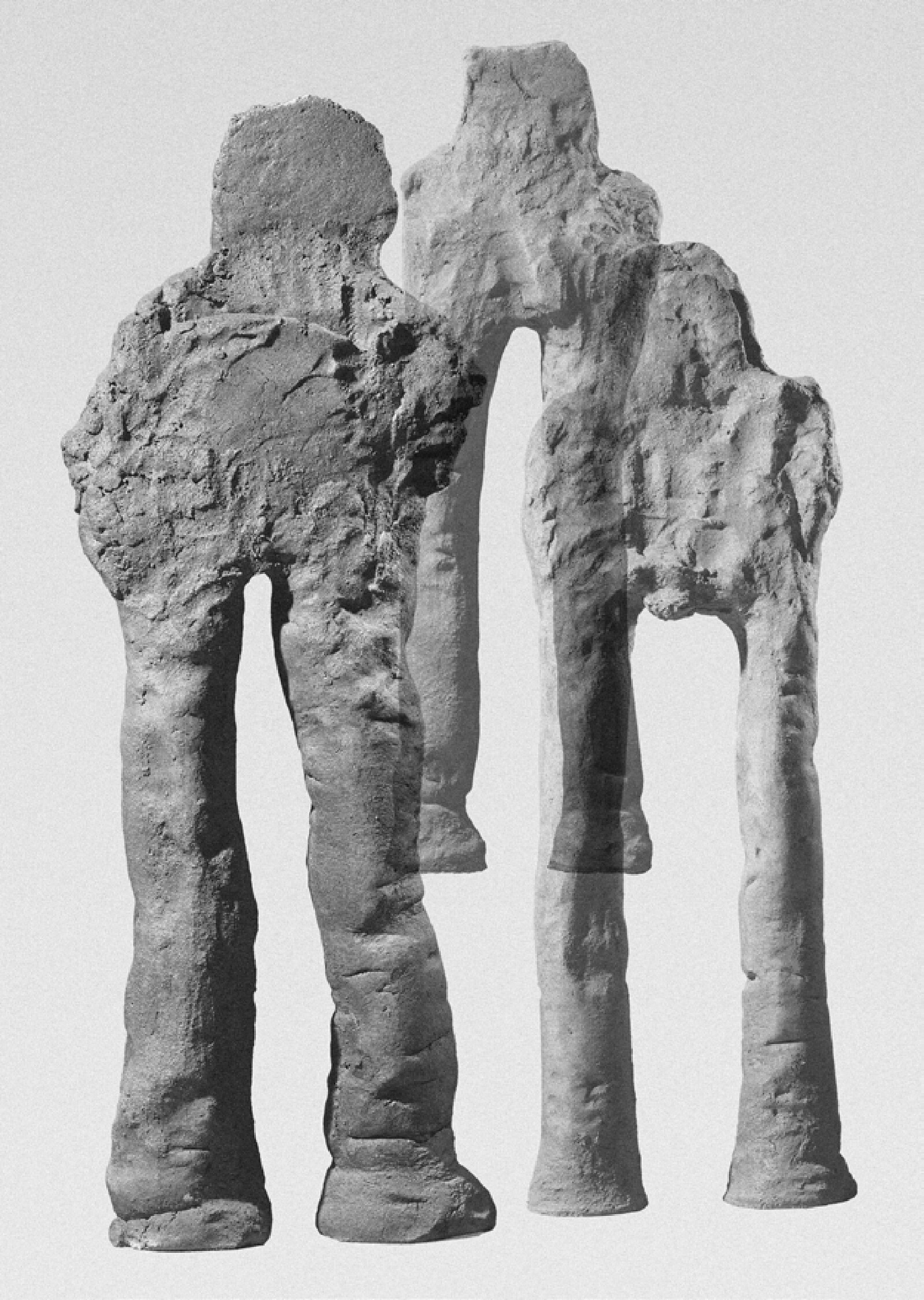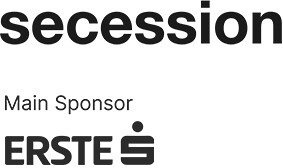Zhou Siwei: I Sold What I Grow
Susana Pilar Delahante Matienzo: Achievement
June 21–September 8, 2024
Friedrichstraße 12
1010 Vienna
Austria
Hours: Tuesday–Sunday 10am–6pm
T +43 1 587530710
F +43 1 587530734
presse@secession.at
Simone Fattal: metaphorS
“Ever since I started sculpting, I have made standing characters. In the beginning, they were small, and gradually grew taller. As soon as I touched clay, I wanted to create characters and therefore, standing men…The way they visibly manifested comes from my archaeological background and my deep passion for my country and its history. For me, history begins with Sumer and has never ended…There is no point where history stops and changes. It’s a continuous moment.” —Simone Fattal
Simone Fattal’s exhibition, metaphorS, showcases a diverse array of works from different periods of her career, spanning from the early 1980s to the present, and featuring a variety of media, including sculptures, paintings, and collages.
Born in Damascus and raised in Beirut, Fattal’s work is deeply rooted in the ancient culture and history of the Middle East. Her inspiration draws from the epic literature, poetry, archaeology, and landscapes of this historically rich and often tumultuous region. These elements are central themes in her work, as she explores topics such as conflict, consensus, nature, culture, history, and faith. Ancient-looking clay and ceramic sculptures are inspired by characters from ancient tales and epics. At the heart of metaphorS are five large standing male clay sculptures representing archetypal heroes, warriors and protectors. These figures serve as metaphors for the human condition, illustrating themes of resistance and resilience. Remarkably, this is the first time the Guerriers ensemble (2008) is being displayed publicly outside of Lebanon, where it is part of the Saradar Collection in Beirut.
Additionally, the exhibition features new paintings, drawings, and collages, including a series inspired by Ludwig van Beethoven and the reception of his work that reflects Fattal’s passion for music and resonates with the proximity of her exhibition to Gustav Klimt’s Beethoven Frieze in the Secession building.
Simone Fattal was born in Damascus in 1942 and lived in Beirut and California. Today she lives and works in Paris.
Programmed by the board of the Secession. Curated by Jeanette Pacher.
Zhou Siwei: I Sold What I Grow
Zhou Siwei translates the contradictions of living and working in contemporary China into a series of playful, personally fragmented and nonlinear works on canvas and painted objects. Probing the ambivalence of digital technologies, the unceasing global traffic in goods, and the sleeplessness of the late-capitalist era, Zhou interweaves diverse visual and cultural influences in ways that make everyday items and signs feel at once familiar and alien, accommodating a wide range of interpretations.
On the occasion of his exhibition I Sold What I Grow, Zhou has created a series of new works that circulate around the leitmotif of the apple: from the humble fruit that is harvested in every corner of the globe, to its simulacra in the painted still lives of Bruegel and Cezanne (which were in turn assiduously studied and copied in the arts academies of China), to its greyscale ubiquity on the surfaces of laptops, phone cases and various other “i-products”. The exhibition thus undertakes a critical examination of the transformation of signs and objects that occurred during the radically truncated flows of information and bodies that was indicative of the COVID-19 health emergency and its aftermath. In so doing, each of Zhou’s seemingly brightly coloured objects also allude to the arbitrary forces in which society continues to be pulled: both backwards towards the indeterminate bucolic “past” so beloved by populist leaders and conservative societal forces, as well as hurtling forwards towards the idealized future of frictionless networks and data flows proselytized by tech entrepreneurs. In embracing these similarly irreconcilable future/past tensions – such as the title’s “broken English” (con)fusion of simple past and present tenses—I Sold What I Grow speaks to the experience of being a painter in the midst of an increasingly fragmented contemporary moment.
Zhou Siwei was born in Chongqing in 1981 and currently lives and works in Shanghai.
Programmed by the board of the Secession. Curated by Damian Lentini.
Susana Pilar Delahante Matienzo: Achievement
For her exhibition Achievement at the Secession, Susana Pilar Delahante Matienzo has developed a new installation, a performance, and an intervention into the building. All three works articulate feminist, anti-racist, and anti-colonial counter-visions, turning the spotlight on the achievements of Black women and championing a form of healing.
In the Graphic Cabinet, the artist presents what appear to be historic black-and-white photographs in a staged archive room, a kind of theatrical setting that evokes the atmosphere of a forgotten storage space. The small-format photographs are stuck between the shelves and in cabinets. The visitors become actively involved in the mise-en-scène as they explore the ostensible archive containing an individual’s personal effects, opening drawers, touching and contemplating photographs. All pictures present empowered Black women achieving freedom, justice, development, joy, and much more. Their attire dates the sitters to between the sixteenth and nineteenth centuries. Only the captions gradually reveal that the unfailingly realistic motifs must have been generated using artificial intelligence: the texts are descriptive instructions on what to depict as well as how.
In addition, an intervention into the architecture of the dome, the first in many years, radically alters the Secession’s appearance for a short period in honor of Black women. Inspired by the Bantu knots, a traditional hairstyle originated by the Zulu in South Africa that is over a century old, Delahante Matienzo’s project transforms the golden dome into a black one: Bantu knots adorn the dome’s ca. 2,500 leaves.
Susana Pilar Delahante Matienzo was born in Cuba in 1984 and has lived and worked in the Netherlands since 2021.
Programmed by the board of the Secession. Curated by Bettina Spörr.
Publications
The exhibitions are accompanied by publications. The digital publications are available for free here.
Opening program
Exhibition talk: Thursday, June 20, 2024, 5:30pm
Simone Fattal in conversation with Emma Enderby (in English), an event by the Secession Friends.
Opening & summer party: Thursday, June 20, 2024, 7pm
Performance: Thursday, June 20, 2024, 8pm
Susana Pilar Delahante Matienzo, Statement, 2024
Press contact: presse [at] secession.at / Press preview: Wednesday, June 19, 2024, 10am / Press materials: secession.at/presse.





